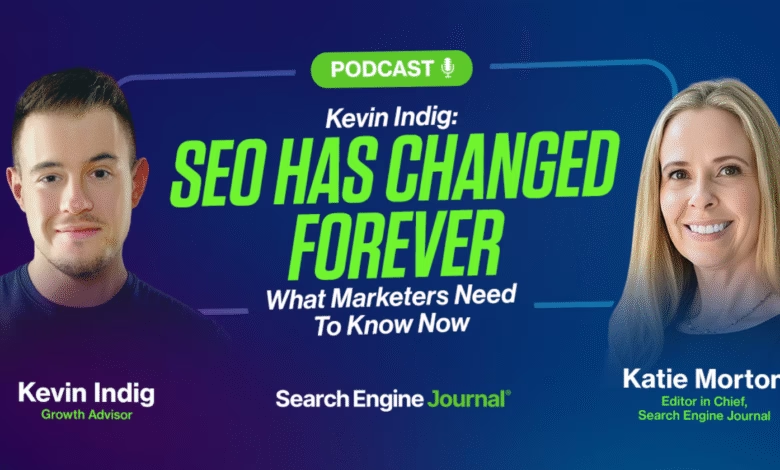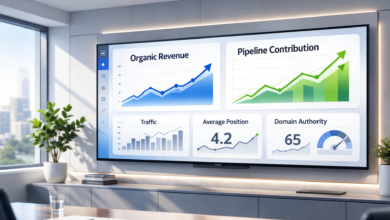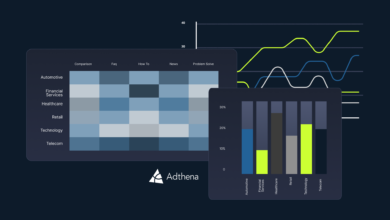Kevin Indig: Essential SEO Strategies for Marketers

▼ Summary
– AI Overviews significantly impact search behavior, with users completing 80% of their journeys via classic organic results rather than AI-generated answers.
– High-quality clicks now occur in high-trust moments, where users verify AI answers through platforms like Reddit or YouTube, emphasizing the need for brand presence in these scenarios.
– Younger users engage more with AI Overviews and platforms like Reddit, while older users often distrust AI answers, requiring tailored SEO strategies based on audience age.
– Brand trust is critical in AI-driven search, with recognized brands benefiting from higher click-through rates, while smaller brands face greater challenges in gaining visibility.
– SEO is evolving into a multi-disciplinary role, integrating with branding, paid channels, and other marketing efforts, requiring adaptability and experimentation in a rapidly changing landscape.
The evolving search landscape presents both challenges and opportunities for marketers in 2024 and beyond. Recent shifts in AI-driven search experiences have forced brands to rethink their strategies, particularly when it comes to visibility, trust, and audience engagement.
A recent study analyzing user interactions with AI Overviews reveals critical insights for marketers navigating this new terrain. While AI-generated answers dominate certain queries, traditional organic search results still drive 80% of completed user journeys. This suggests that despite the rise of AI, well-optimized content remains essential for capturing high-intent traffic.
High-quality clicks now carry more weight than ever. Users increasingly rely on trusted sources, such as Reddit discussions or YouTube reviews, to validate AI responses. Brands that establish authority in these verification moments gain a competitive edge. Additionally, audience demographics play a significant role, with younger users more receptive to AI answers while older demographics remain skeptical.
Brand recognition has become a make-or-break factor in search performance. Established brands benefit from inherent trust, but even industry giants must continuously reinforce their reputation. Smaller brands face an uphill battle, requiring cross-functional collaboration between SEO, marketing, and product teams to build credibility.
The role of SEO is shifting from a purely performance-driven channel to one that integrates branding, trust signals, and multi-platform engagement. Marketers must now focus on holistic visibility, expanding beyond Google to platforms like Reddit, YouTube, and emerging social networks. A “surround sound” approach, where content is repurposed thoughtfully across channels, proves most effective in reaching fragmented audiences.
Experimentation and adaptability are key. With rapid changes in AI and user behavior, rigid strategies no longer work. Teams should embrace iterative testing, measure impact beyond traditional metrics, and remain agile in response to shifting trends.
While uncertainty looms, this transition also opens doors for innovation. Marketers who leverage AI tools, refine their brand messaging, and diversify their traffic sources will be best positioned for long-term success. The future of search demands a blend of technical optimization, audience insight, and strategic risk-taking, ushering in a new era of digital marketing.
For deeper insights, industry leaders recommend tracking engagement metrics, brand search volume, and conversion quality rather than relying solely on traffic numbers. The most resilient strategies will prioritize trust, relevance, and cross-channel cohesion in an increasingly AI-driven world.
(Source: Search Engine Journal)





